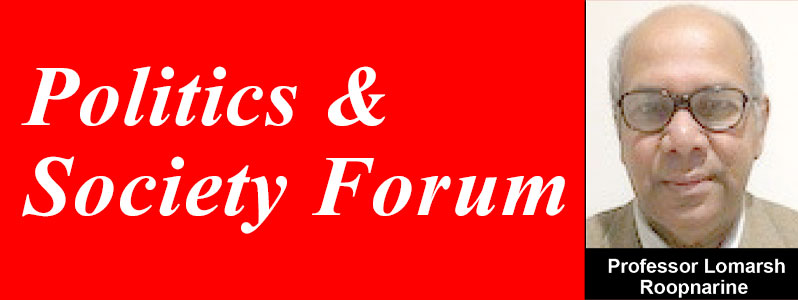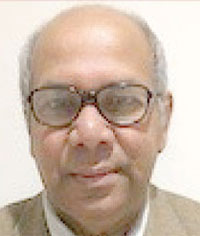I AM composing this column in the backdam of Village No. 72 in Upper Corentyne, Berbice under a shady tree not too far from a piece of land my family owns. From where I am sitting, I can see Skeldon Estate as well as a profusion of greenery, notably, acres of rice and sugarcane fields. There is some wildlife, including a few alligators sunbathing on the banks of the canals. They are harmless, and that is, if you do not mess with their space. There are some people tending their fields while some are fishing with cast nets. The place is serene.
I have not visited this place for some time, and so, naturally, emotions are flowing like water from the canals into the Corentyne River onto the Atlantic Ocean. I spent a lot of time here helping my parents in rice fields, and when I reached a workable age, I joined my fellow villagers and worked for daily wages planting, harvesting, porting, and drying rice paddy. It was hard work made lighter by humour and magnificent sunshine.
I can say that the people who developed these rice fields about one hundred years ago would recognise them if they returned. Little has changed. Life here is routine. These backdam fields come to life seasonally, planting in the rainy period during the first months and harvesting in dry season in the latter months of the year. These activities have placed an indelible imprint on my mind. I was hoping to recapture some past activities and memories. Unfortunately, many of whom I have shared my rice field upbringing with, have long gone into another world or out-migrated.
I wonder what would have happened to me had I stayed in my village, and not out-migrate to the United States. What my life would have been? I saw many who lived and died in these lands and never got beyond the fundamentals of life. I saw how the fortunate exploited the unfortunate in ways that would invoke tears from most stoic minds, publicly. I ask myself, would I have been cabined and camped in the dungeons of rice field life like the unfortunates? I say maybe! I also question whether it was all bad in my village, and I think obviously not. Then why do I criticise a place that has shaped, molded, and even fed me? I do not know. This is what uprootedness does to the mind. It creates ambiguity, ambivalence, and awkwardness. Yet, in some chambers of Guyanese psychology, it is understood that one cannot escape where one’s navel string is buried. In my experience that would mean a place in my parents’ backyard, and by extension, the plantation yard of my indentured ancestors.
I wonder, too, if I am dragging the chains of my ancestors’ sin, indenture. As I look around and see the vast agricultural land, my father, who died suddenly in Syracuse, New York in 2004, comes to my mind. He did not own any of the land I am staring at, except for two acres, which he used to feed his family. He was a sugarcane cutter. I am proud of him. He was a decent man, but he never read to me because he did not know how to read. When I mention this, not regularly, to my American colleagues, they would become extremely quiet thinking, I suspect, what has motivated me so much so that I am sharing a seat with them around the academic table. I receive somewhat similar signals and sentiments when I am in Guyana, although with less intensity.
I am waiting for the twilight to emerge before leaving these backdams. What a delight it is. The scenery changes quickly. The sunshine fades and I feel like I am walking away from an oasis of peace. Different sounds emerge. The birds are chirping. The toads are croaking. The wind buzzes stronger. My Shirt Jac balloons in the back and my shirt collar rattles like snakes in the razor grass. Out of nowhere I hear a voice saying to me, my son, you are at home, you are safe, come nestle in a place that has shaped you. You can now allow yourself to feel the flow of energy of these backdams in your own body, and do come back, for we are waiting for you. My mind flashes back to the poem “The Prisoner of Chillon” by Lord Byron.
My hair is grey, but not with years,
Nor grew it white
In a single night,
As men’s have grown from sudden fears:
My limbs are bow’d, though not with toil,
But rusted with a vile repose,
For they have been a dungeon’s spoil,
And mine has been the fate of those (lomarsh.roopnarine@jsums.edu)




.png)









